
30 Mar, 2019
Sustainable Development Forum flags chasm between rhetoric and reality
Bangkok — When Sabrina Rose Rasu, a young women’s rights activist from Vanuatu, spoke at the Sixth Asia-Pacific Forum on Sustainable Development on behalf of the Youth and Civil Society movements, she said explicitly, “We demand system change.” In four crystal clear words, she pinpointed both the problem (The System) and the solution (the need to change it). Is that likely to happen? The way things are going, probably not.
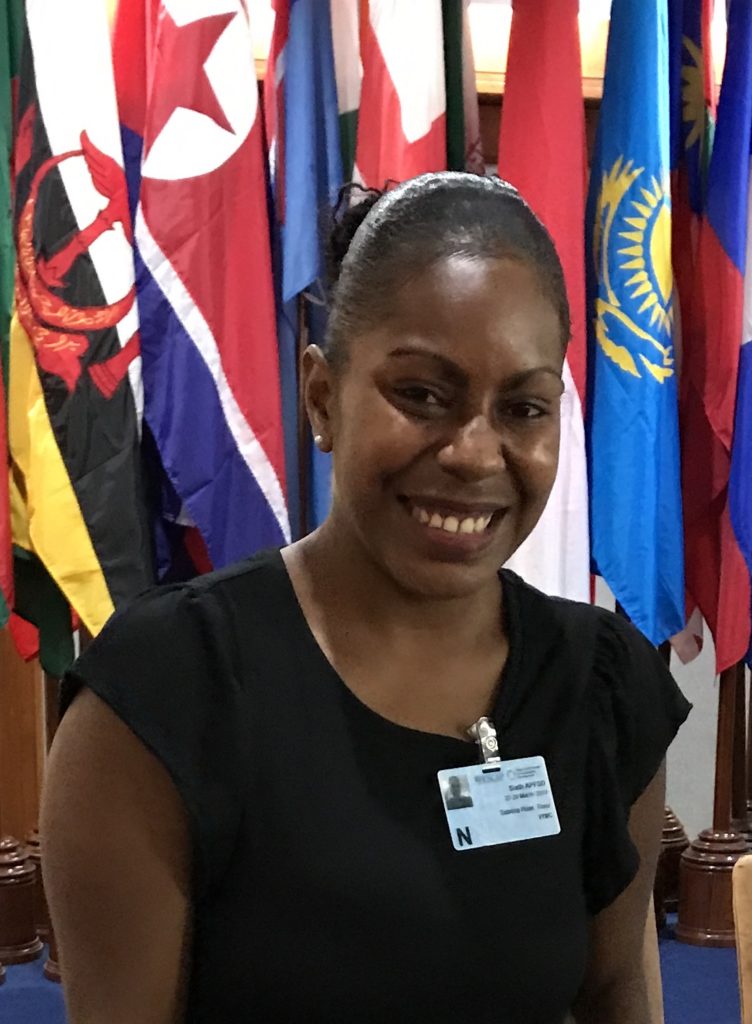 Sabrina Rose Rasu |
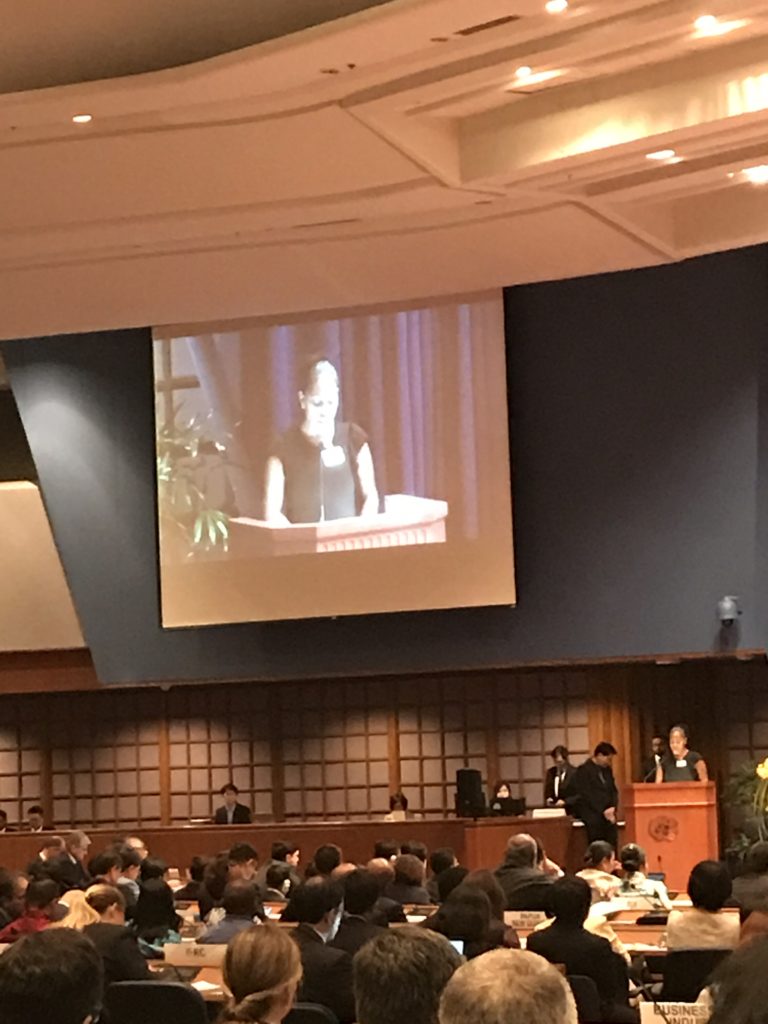 |
Her passionate, from-the-heart plea, which can be read in full here, has been heard annually at Asia Pacific Sustainable Development Forums ever since they were launched in 2014. The UN gives selected grassroots People’s Movements a voice and platform in recognition of their role as “good guys” who are working with other “good guys” (the UN system and various arms of governments) to defeat the “bad guys” responsible for most of the social, cultural and environmental degradation devastating much of Asia, Africa and beyond.
Exactly who are the “bad guys?” Ms Rasu had an answer for that too: “Governments and corporate interests” which are responsible for the “repression and silencing” and should be held accountable for the “failed economic models that have created this mess.”
And what “mess” is that? Again, very clear: An “unequal and divided” world, a world with disappearing languages, culture, resources and local knowledge, a world in which 26 richest persons own as much wealth as 50% of the world’s poorest; a world where 157 of the richest 200 entities in the world are multinational corporations.
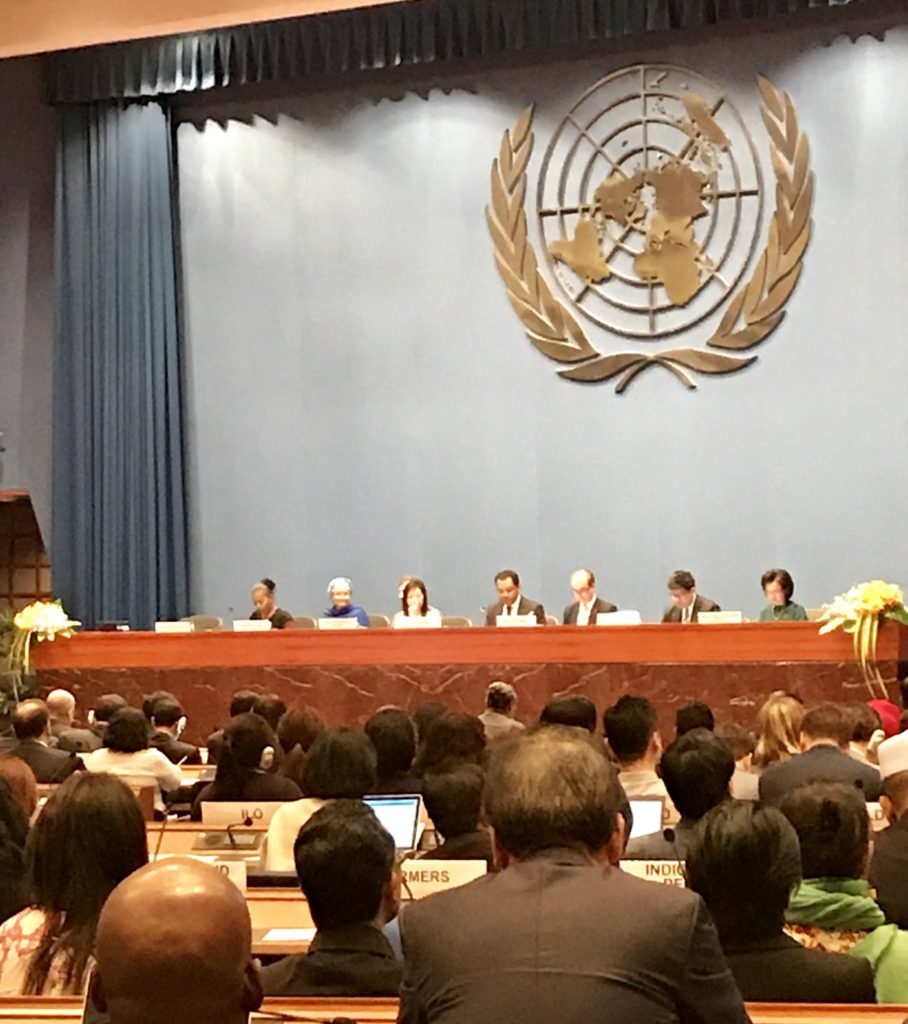
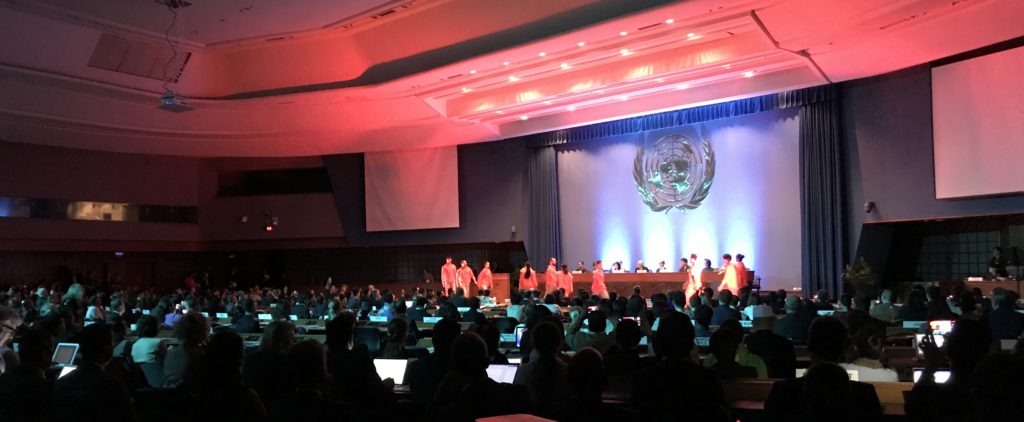
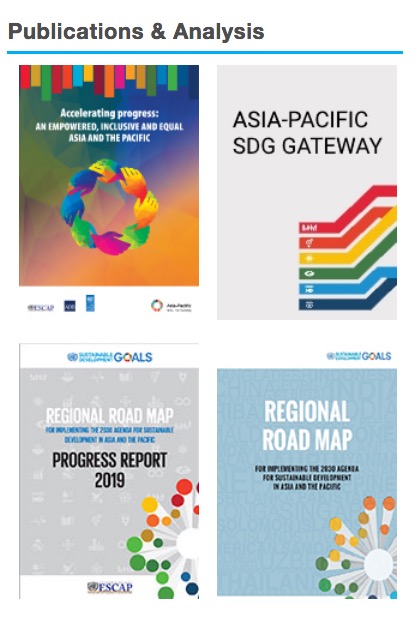
Ms Rasu’s choice of words could have been fine-tuned. The mess is created not by “governments and corporate interests”, but a handful of unscrupulous, unethical, corrupt and criminal elements within governments and corporate interests. These would comprise probably 1% in terms of global headcount, but are responsible for 99% of the problems. In many cases, the “mess” is also an unintended consequence of a good policy gone bad.
Listening to Ms Rasu in the audience at the March 27-29 APFSD were mostly the “good guys” — representatives of ministries of foreign affairs, natural resources, environment, development agencies, professors, consultants and various other high level experts and technocrats. Although they gave Ms Rasu a warm round of applause, and complimented her privately later, their ability to deliver either System Change or Development Justice, both key demands of the Youth and Civil Society movements, is restricted.
I scanned the numerous official reports and documents issued at the APFSD for the words “Development Justice” and “System Change”. They did not appear anywhere. This, in spite of the fact that Youth and Civil Society Forums long have been table-thumping in support of both at the APFSD. For example:
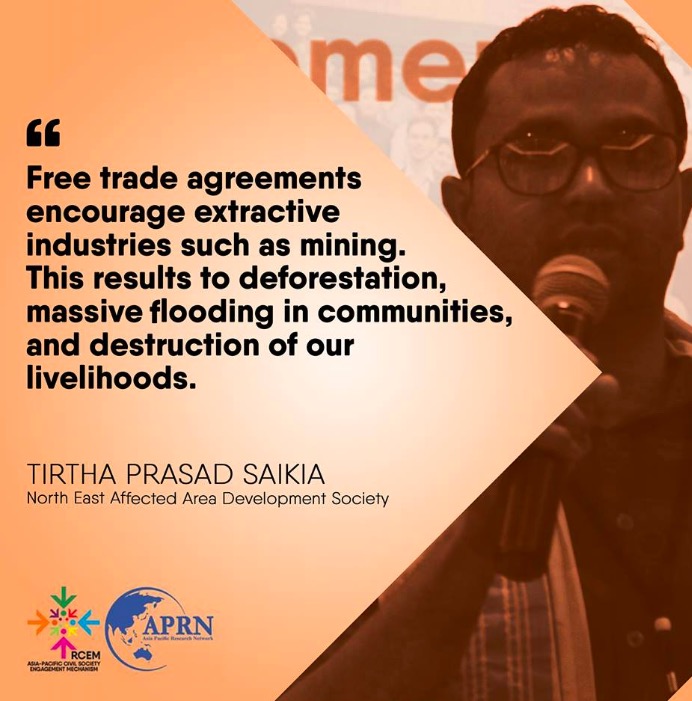 |
 |
In April 2016, Mr. Sanjeet Aggarwal of India quoted the Father of the Indian nation, Mahatma Gandhi, “Earth provides enough to satisfy every man’s need, not every man’s greed.” He minced no words in citing the dangers of “The System.”
“When I look around and read about the state of our world, I realise that the affinity of market forces to promote greed and unequal growth has left little of the Earth’s resources to satisfy the needs of the majority, let alone the needs of my generation or the generations to come.”
He added, “I live in Delhi, India’s capital, a melting pot of cultures and a rapidly expanding metropolis. I see more wealth, more consumption, more technology. But I also see horrifying poverty, increasing heat, unpredictable weather and floods and increased pollution and this is not unique to my city or country.”
He asked the delegates point-blank: “When policy makers were thinking about ‘the world we want’ 20 years ago, did they decide they wanted a world where 62 people own more wealth than half the world’s population? Where there are more skyscrapers but also more urban slums? More products on our shelves but less locally made and owned? More jobs but lower wages? Did they imagine a world where more and more people lose their lands to mining companies, dams or to big businesses? Did they want a world where catastrophic climate change threatens our very existence?”
He said he hoped to “inspire you to make this important meeting a game-changer, with a roadmap to real impact, not just words on paper (because I know there were many words on paper 20 years ago that didn’t promise to take us down this path), to make the Asia-Pacific Forum on Sustainable Development, and it’s regional roadmap an integral part of shifting our world and our region to a more just, sustainable and equitable planet. And most of all I’m here to remind you that your decisions have consequences for future generations….
“If Agenda 2030 is successful, by the time I am 28, poverty, hunger, child labour, discrimination will all be lesser evils. But most of all we will have achieved a world driven by equality and equity and not greed.”
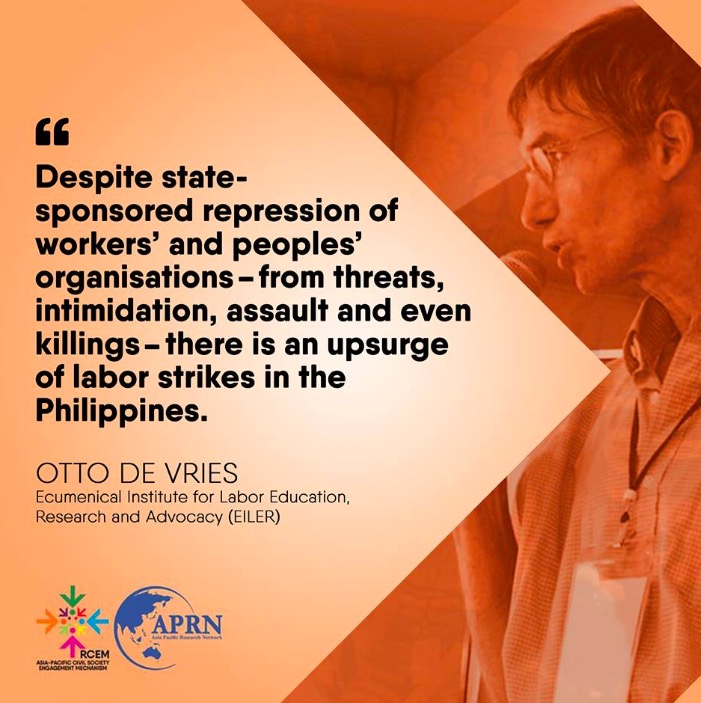 |
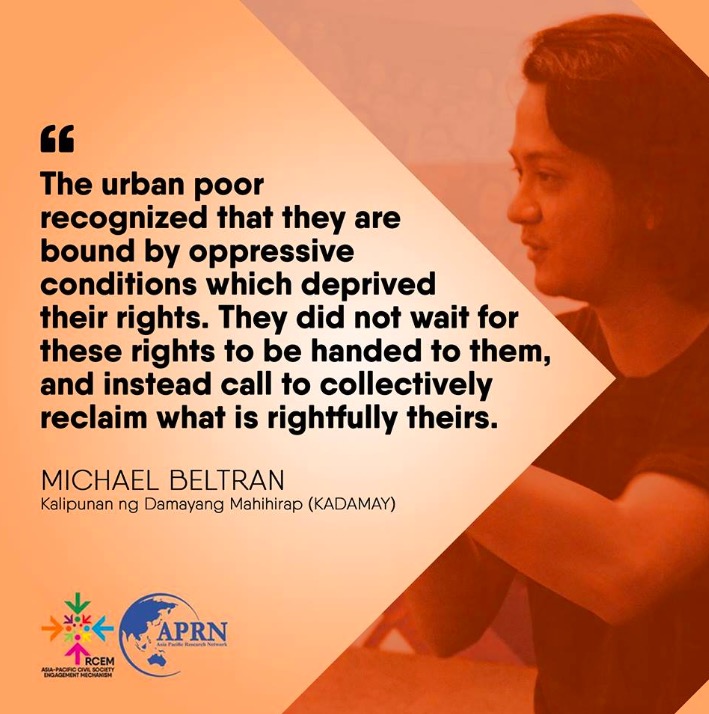 |
He was followed by Ms Mai Naomi Thang who hails from a village community in the Southern part of Chin State, Myanmar, which she called “one of the poorest communities in one of the poorest countries in this region.” She also cited the dangers of “The System.”
“As a resource rich country, Myanmar now faces the threats and challenges many other poor countries have faced – pressure to liberalise our economy means our land may be bought by wealthy foreign investors. Land concessions for ‘development projects’ and agro-business have robbed many indigenous and rural peoples of their land. And climate change threatens the very land we are fighting to inherit.”
“When I started my work to claim our inheritance rights I did not know that governments were negotiating new development goals. I did not know that you would set a target to ‘ensure women’s equal right to own and control assets and productive resources.’ I did not realize that I, together with the women in the community, am the means of implementation. I promise to you that we will work to secure the target you set. But you must work with us. You must ensure that assets and resources and a livable planet remain for us to inherit.”
Her appeal was crystal clear. “Like me, there are many young women around the world taking risks to create the world we want. I encourage you to take some bold, maybe even courageous, steps to deliver a roadmap for the Asia Pacific Forum on Sustainable Development that makes our work and vision possible and delivers Development Justice.”
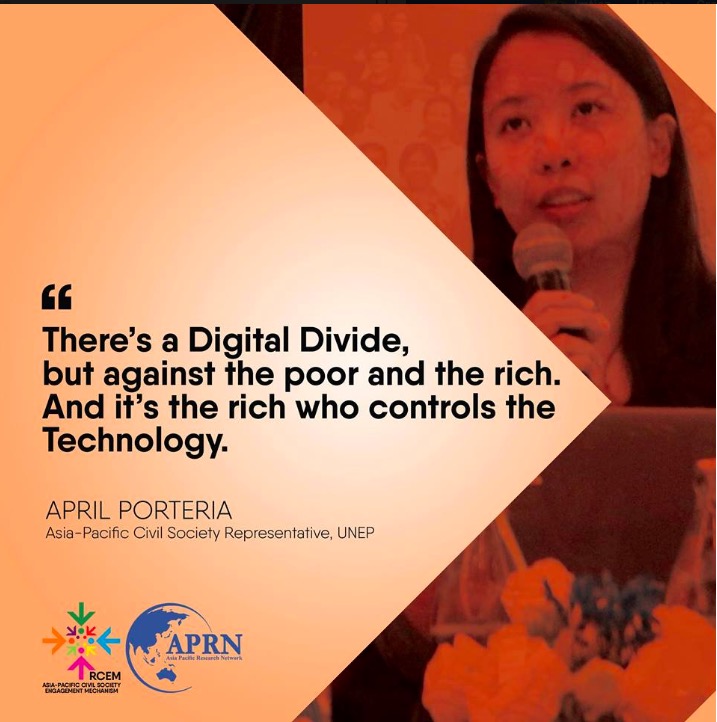 |
 |
The following year, in 2017, Mr. Amit Timilsina, President, YUWA, Nepal also reminded APFSD delegates of the need for System Change.
Nepal’s “beauty is marred by poverty and its diversity is shadowed by inequality. One in 4 lives in less than 1 dollar per day and this was made worse by the earthquake of 2015 that pushed even more people to poverty, homelessness, hunger, lack of basic sanitation and health infrastructures.” Young people comprise 40% of the population, but “many are still studying in make-shift schools without protection from rains and harsh sun, or falling ill due to lack of adequate sanitary and health facilities.
“While we welcome positive and progressive actions of the Nepal government in pursuing the SDGs, many challenges still remain,” he said. “Widespread food insecurity, low basic education completion rate, lack of decent employment even for educated youth, blocks in implementation of SRHR laws, deeply entrenched gender inequality, prevalence of child marriage and practices against young girls like Chaupaddi – these and more have made a lot of young people like me unsure about our present and future, leading a lot of us to migrate overseas for that mythical better life as a migrant.”
He added, “We are the people who will be failed by the Agenda 2030 if systemic barriers of land problems, climate change, unjust trade, militarism, corporate takeover of development, and patriarchy and fundamentalism, that are at odds with development justice are not addressed.”
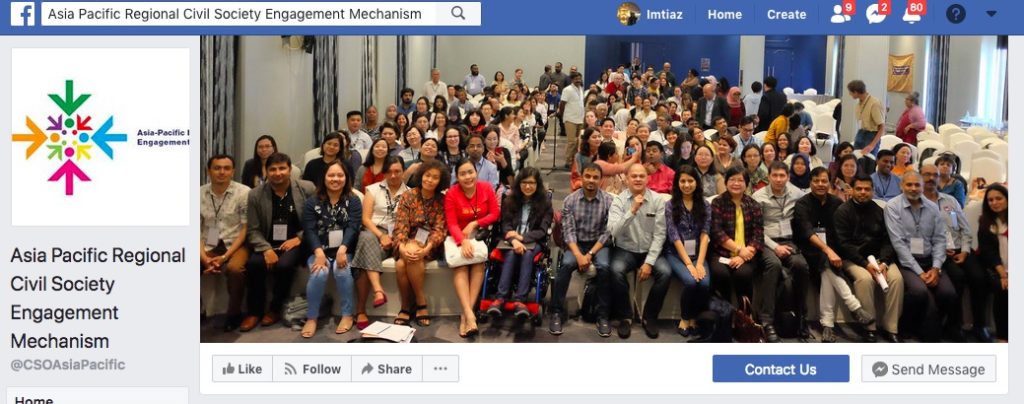
Another story of victims of The System came from Helen Hakena from Papua New Guinea. One victim was her six-month old grandson who died just two days before she spoke, due to poor medical facilities on the Island of Bougainville? Why?
Said Mrs Hakena,”Bougainville suffered a 20 year war when one of the world’s largest open pit mines, Paguna, destroyed our rivers, our lands and environment but also destroyed our communities. This unfair, unsustainable environment led to a war. The Bougainville Revolutionary Army burnt my home. I was seven months pregnant and suffering from malaria. I was petrified and gave birth to my fourth son prematurely on a bare floor with no medical help. In that abandoned bank, I witnessed another mother die in childbirth and another baby die.”
She added, “Women were raped as a weapon of war. This conflict led to militarized communities, a whole generation of children missed out on going to school – they were ‘left behind’ with no education and no chance to learn community knowledge or skills. And what do you think it leads to? It leads to the world’s highest rates of violence against women. Two years ago a UN study found that 62% of men admitted to raping women in Bougainville.”
And what did “The System” do? She went on: “Even though the mines and logging on our Island produced hundreds of millions of dollars in profit, our Island did not become prosperous. Less than 1% of the profits of the mine went to the local communities.”
And now, she said, another enormous threat looms – climate change. “The people of the Islands surrounding Bougainville are already being relocated – they are the world’s first climate refugees. People who have lived without electricity, without contributing to climate emissions are now suffering the consequences of the world’s greed and consumption.”
“In a world where six men own more wealth than half the world’s population, where 30 trillion dollars sits in tax havens, where 10 companies have more revenue than 180 countries combined we must ask ourselves whether we need more prosperity or just fairer prosperity?
“I know it would take brave governments and a different UN to resist the weight of corporate power and wealthy people. I know how hard it would be to cooperate to collect more taxes, to put a moratorium on new coal mines, to protect all our rivers, to agree to a regional living wage, to guarantee all people free healthcare and lifelong social protection. To deliver Development Justice.
“But it is possible. We have the wealth. We just need the political will. And if we don’t, more children will be denied a future they would have wanted.”
Last year, in 2018, Ms Joan Carling, a Filipino representative of Indigenous peoples, spoke emotionally about how she and her community had become victims of land-grab investors. She too called explicitly for “System Change.” Arguing passionately for her people, she told the APFSD delegates that these poor farmers, who made a living off the land, were the real champions of sustainable development, not the investors and developers seeking to enrich themselves by grabbing their land.
Today, the UN itself admits that although a lot of progress has been made towards attaining the UN SDGs, things are not going well as well as expected.
This year, the new Executive Secretary of ESCAP, Ms Armida Alisjahbana, became the first to attend the People’s Forum. She told them frankly that “despite our region’s successes – its economic growth, technological prowess and entrepreneurial ingenuity – inequalities continue to run deep in Asia and the Pacific. Put simply, too many people are left marginalised, unable to shape, benefit from, or fully contribute to the societies and economies in which they live. This is slowing progress towards the SDGs even as our research shows our region can afford the investment needed for success. On our current trajectory, not a single Sustainable Development Goal will be met by 2030.”
 Amina Mohammed |
Her words were backed up by the UN’s second highest ranking official, Deputy Secretary General Ms Amina Mohammed who said, “We must recognize that we are not on track to deliver on the ambitions we set for ourselves. The numbers are clear. The region’s combined income inequality has increased by over 5 percent in the past two decades, including in the region’s most populous countries – China, India and Indonesia. As a result, 70 per cent of the population in this region lives in countries where inequality has grown over recent years. “
She said, “Gender inequality continues to hinder progress. Close to two-thirds of all working women are in the informal sector, with insecure employment and little – if any – social protection. And while the region is now home to the largest number of billionaires in the world, millions of people lack access to fundamental services, that the world is not on track to achieve the SDGs.
“In Asia-Pacific, rising inequalities have become a major obstacle to accelerating progress. Inequality of wealth, of access to basic services and inequality in the ability to withstand setbacks and respond to the ravages wrought by climate change, are all on the rise. This erodes social and economic progress, but also undermines the social contract, with consequences for peace and stability.”
In addition, Ms Mohammed said, “Environmental degradation is also taking its toll. The average loss in productivity due to pollution is roughly 8 times higher in developing countries than in developed countries in the region.”
Clearly there is no disputing that development is unjust, and that The System needs to change. Except that the UN will not use that language. Instead, it gets phrased like this:
Ms Armida said, “Many of the organisations you represent have the grassroots knowledge needed to sharpen our effort to ‘empower people and ensure inclusiveness and equality’. Ms Mohammed said: “I know I speak for all of us when I say that it is time to share the benefits of growth and globalization more widely. It is a matter of urgency to empower our women and girls; to leverage the immense potential of youth for positive change and innovation; to reverse the trend on inequalities; and to put people and planet at the center.”
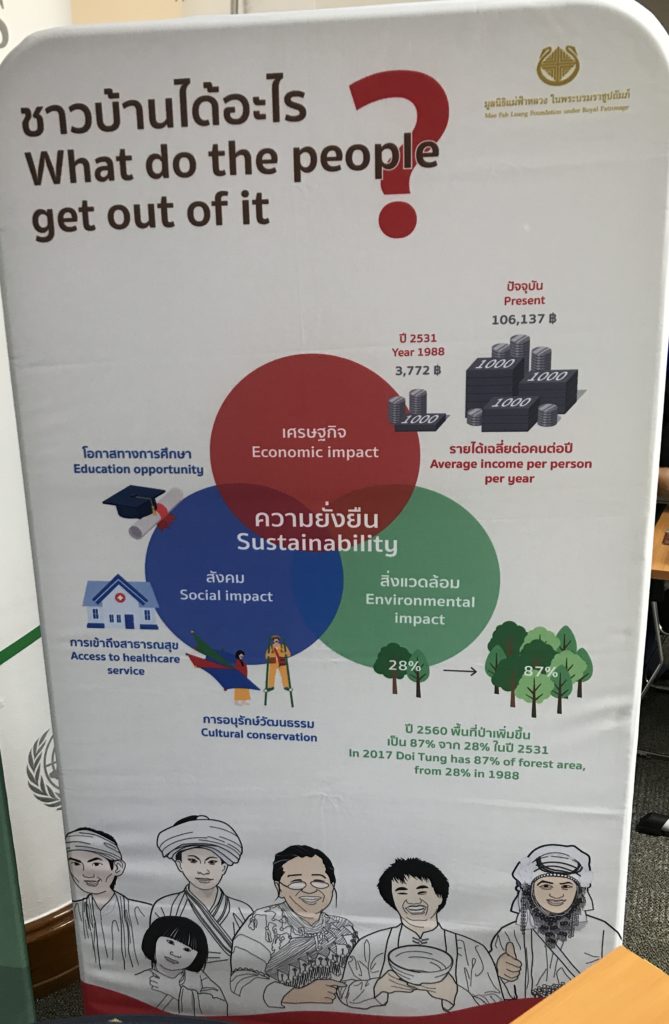
That differentiation in language leads to a digression in the search for solutions.
The System Change challenges cited by the Youth and Civil Society are clear: Neoliberal market forces which promote greed and unequal growth, pressure to liberalise economies, land grabs by foreign investors for ‘development projects’ and agro-business, global political and economic rules, climate change, unjust trade, militarism, corporate takeover of development, and patriarchy and fundamentalism, just to name a few.
Shifting the agenda from “Sustainable Development” to “Development Justice” will require the “good guys” in the ranks of governments and corporate interests to heed, not just hear, the Civil Society and Youth movements, to take risks, show bravery and courage and generate the political will to take on the “bad guys.” However, there is no sign that the “good guys” are willing to step out of their politically-correct comfort zones. The path to solutions is also full of UN-speak gobbledygook.
Ms Mohammed identified three drivers. First, she said, “We need to break down the silos that constrain policy action across sectoral lines. We have not yet fully transitioned from the Millennium Development Goals into the era of the SDGs. For example, addressing climate change is not only about preventing catastrophic events; reducing fossil fuels use has also direct and immediate benefits on health.” Second, she said, “We need to match intentions with finance – both public and private. There is growing private interest in SDG financing and a proliferation of impact investment in the region. This is great. But we are still far from the “trillions” that are required to achieve the SDGs everywhere, for everyone.” Third, she said, “build more partnerships at a scale that we have not witnessed before. “We will not achieve the 2030 Agenda – nor win the race against climate change – without involving all sectors of society towards our common goals.”
In other words, reshuffle the policy decks, throw more money at the problem, and scale up partnerships (as if there aren’t enough already).
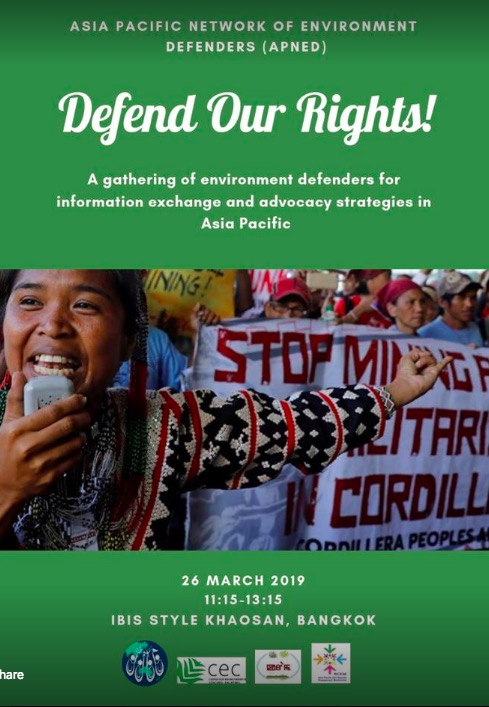
Ms Armida had her own set of policy options. First, throw more money at the problem — “increased investment is needed to quicken the pace of progress. Initial analysis suggests that most countries can afford it, although where the money is needed will vary greatly in a region of the size and diversity of Asia and the Pacific.”
Second, reshuffle the policy decks — “We need to enable people to shape the policies which determine their future, the services on which they depend and the household decisions which govern their daily lives. If the additional investment can be unlocked, empowering people can ensure policies are fit for purpose and every dollar spent, on target.”
Thirdly, “we should put rights at the heart of environmental policy, give people a stake in the environment and quicken the transition to renewable energy. Supporting women’s participation in household decisions drastically improves children’s health. Resetting social norms to make child marriage unacceptable demonstrably improves women and girls’ educational attainment.”
Do any of those drivers and options respond to the call for “System Change”? Will they deliver “Development Justice?”
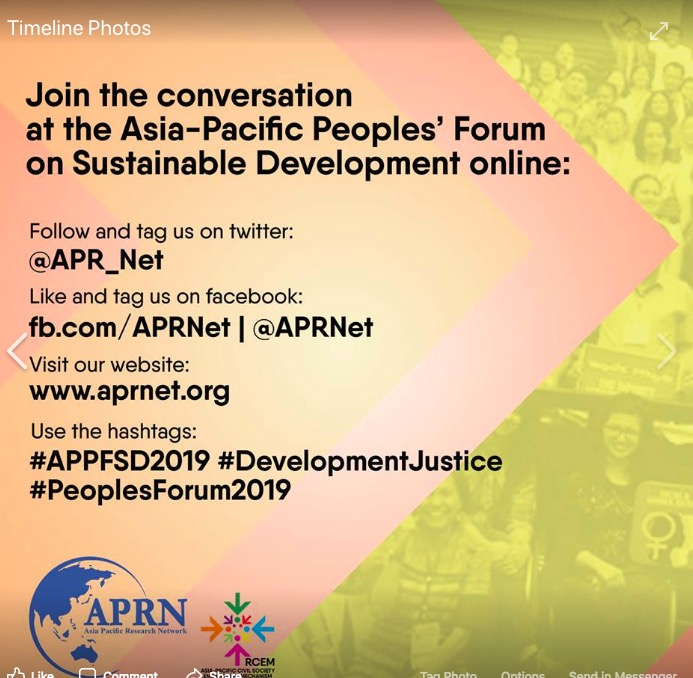
Will throwing more money at the problems help alleviate wars and human rights violations? Will reshuffling the policy decks free up money from tax havens and reduce the level of geopolitical and financial instability? Will forging more partnerships reduce deforestation and water wastage and curb the ravages of logging and mining companies?
Will any of the “good guys” amongst governments and corporate interests come to the rescue of villagers being victimised by land-grabs? Will they stop journalists and whistleblowers from being arrested and jailed for exposing wrongdoing? Will they stop their own home-grown “bad guys” — unscrupulous, unethical, corrupt and criminal elements — from attacking the civil society movements?
Compare the public statements of the two sides and the dichotomy becomes stark. While decision-makers talk of policies, partnerships and money, the youth and civil society movements are telling them to step out of their cocooned comfort zones. Producing yet another report, passing yet another declaration, doing yet another study, holding yet another meeting, delivering yet another speech will do little to help those bearing the brunt, taking the risks and facing the “bad guys”.
In 2020, the Asia-Pacific Sustainable Development Forum will convene yet again, topping up both Thailand’s tourism arrivals and the revenues of Bangkok hotels, restaurants and shopping centres. But will there be any System Change or Development Justice? I am not optimistic.

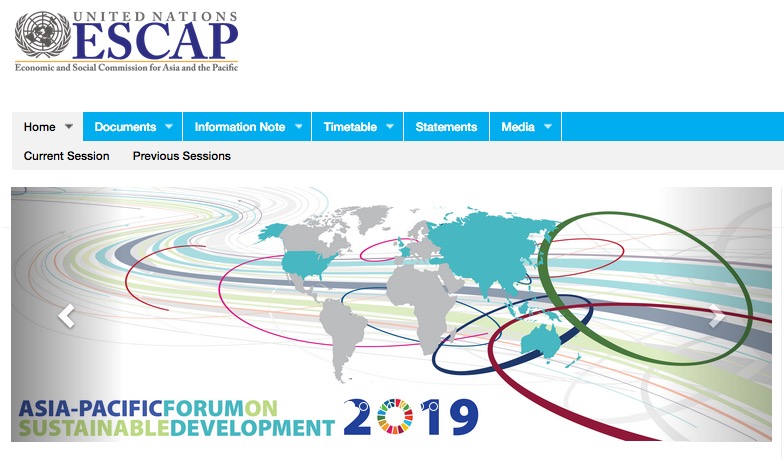
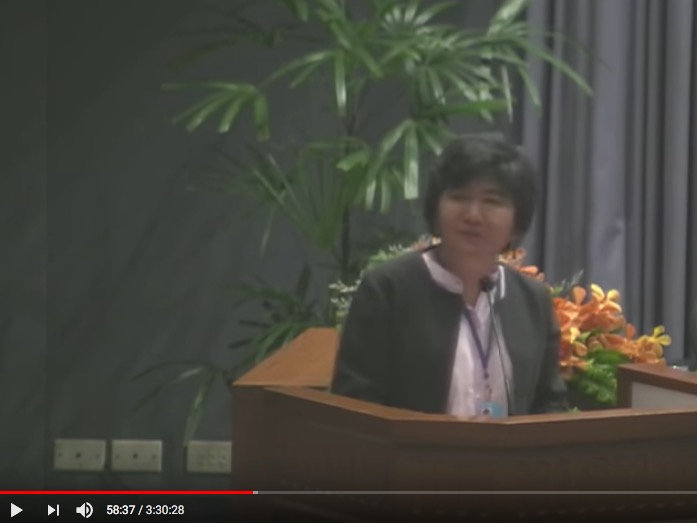


Liked this article? Share it!